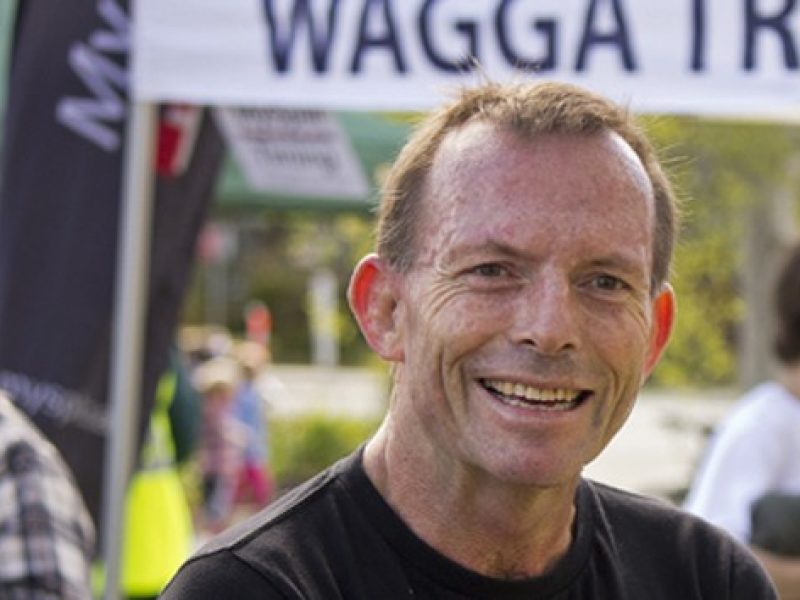In contrast, Rudd’s replacement from the Liberal Party, Tony Abbott (pictured above), opposes the case to change the Marriage Act. This is despite Abott’s openly gay sister, Christine Forster, asking her brother to reconsider his position.
With the change in the Australian government, Pink Families asks: what does a Liberal Nationals Coalition government mean for gay families in Australia?
An answer to this question can be found in a recently published survey, which asked the three major Australian political parties targeted questions about their positions on LGBTI issues.
Paid parental leave for same-sex parents
When the Coalition was asked whether or not they would support paid parental leave for same-sex parents, they failed to directly answer the question. Their position on paid parental leave for gay families in Australia remains unclear.
In contrast, the ALP said: “Same-sex parents will be treated equally under Federal Labor’s paid parenting leave arrangements.” The Rudd Labor Government’s same-sex law reform package (passed in 2008) “removed discrimination against same-sex couples and their families in areas such as taxation, superannuation, social security and family assistance, the Pharmaceutical Benefits Scheme Safety Net, the Medicare Safety Net, aged care, veterans’ entitlements, immigration, citizenship and child support and family law.”
When the Australian Greens were asked about their position, they said they would treat same-sex parents “exactly equally to heterosexual parents.”
Medicare-funded fertility services for gay families in Australia
When asked if the Coalition would support Medicare-funded support for “social infertility” services, the Coalition failed to answer the question. Their position on Medicare-funded fertility services remains unclear. We therefore don’t know if they intend to provide gay families with equal access to Medicare-funded fertility services.
In contrast, the ALP said: “We are committed to ensuring that same-sex couples do not face discrimination in any area of government policy, including in relation to Medicare-funded fertility services.”
When the Australian Greens were asked what their position was they said: “Yes” they were committed to ending this discrimination.
Recognition of gay families in Australia
The survey also asked each party whether they would recognize lesbian co-mothers and gay co-fathers through federal law.
Again, when asked a specific question, the Coaliton failed to directly answer the question.
In contrast, the Australian Greens answered: “Yes” they would recognize gay families in Australia through federal law.
The ALP also answered: “Yes” to this question and they elaborated on the advances they instigated in their 2008 reform package.
Same-sex adoption
Each party was asked what their position was on same-sex adoption and whether they would work to ensure that inter-country adoption is lawful for same-sex couples.
The Coalition failed to provide a clear answer.
The ALP acknowledged that adoption laws are the responsibility of the state and territory governments. They also said: “Federal Labor believes that same-sex couples should have the same adoption rights as heterosexual couples.”
Intersex issues
Each party was also asked about their position on intersex issues.
The Coaltion said: “Issues surrounding intersex surgeries are governed by State legislation. The Coalition will continue to work constructively with the States to ensure that intersex issues are properly understood in the context of medical practice. The Coalition has no plans to change the 2013 Australian Government Guidelines for the Recognition of Sex and Gender.”
The ALP said they were “committed to working on outcomes which will prioritize the best interests of intersex people” and they would “continue to provide funding to organizations, such as the LGBTI Health Alliance, to support the needs of the intersex community.”
The Australian Greens were the most supportive of improving equality for intersex individuals and their families. They said: “The Greens believe in permanent medical intervention for people born with an intersex condition to only occur when they are able to make the decision for themselves, unless it is to be in the best interest of the child based on compelling medical reasons.” They continued: “The Greens want to ensure that all Australians have the right to their self-identified gender.” The Australian Greens indicated their awareness of the challenges that intersex individuals and their families face.
Transgender and gender diverse issues
When asked about transgender and gender diverse issues, the Coalition said they are “committed to improving the quality of health for all Australians. We believe that good health care should be accessible and available to all Australians regardless of their sexual orientation or economic status.” The Coalition “acknowledges the medical and mental health issues that arise from gender diversity and is committed to consulting with the medical profession and all stakeholders to properly address the health and well-being of trans and gender diverse Australians.”
The ALP said that they would be “willing to discuss policy issues” related to barriers for the LGBTI community and that they would commit to working with relevant health care parties to “increase knowledge of transgender issues.”
The Australian Greens said they “believe that all intersex and transgender people should be able to alter their sex on all official documents, consistent with how they live and identify, irrespective of their marital status.” They said they were “committed to providing a nationally consistent approach for trans and gender diverse people.”
Where can I find out more about what each major political party will do for gay families in Australia?
You can read each party’s responses to this survey’s questions via the Gay and Lesbian Rights Lobby (GLRL).
The survey was a joint initiative launched by the NSW Gay & Lesbian Rights Lobby (NSW GLRL), the Victorian Gay & Lesbian Rights Lobby (VGLRL), Transgender Victoria (TGV) and Organisation Intersex International Australia (OII).
In this video below, a father of a gay son asks Tony Abbott when “will you sir overcome your fear and ignorance of gay people and give them the dignity and respect that you’d happily give to all other Australians?”
Image: Wikimedia Commons | Bidgee


